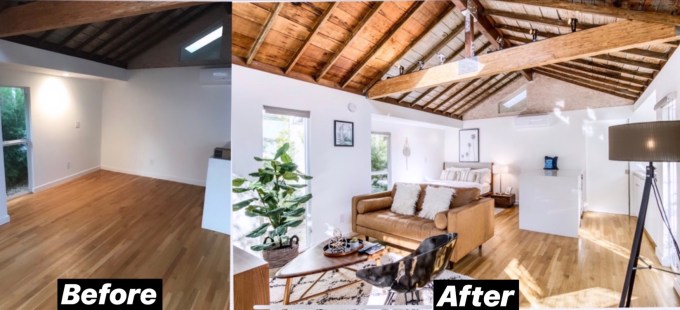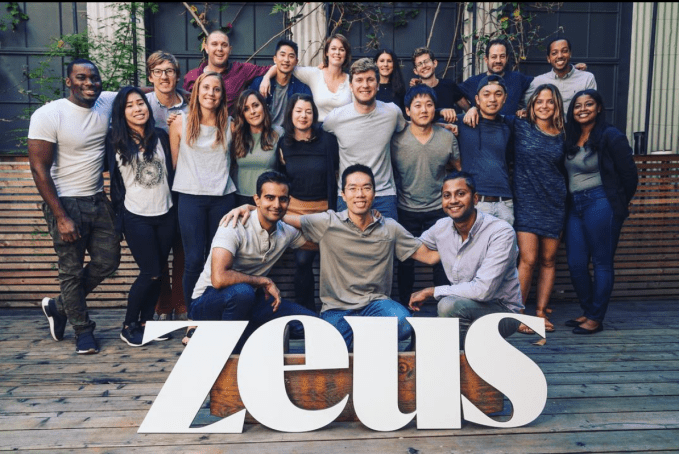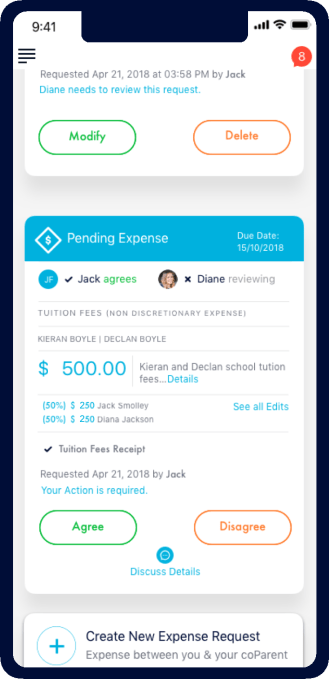Startups
Auto Added by WPeMatico
Auto Added by WPeMatico
Cookie-cutter corporate housing turns people into worker drones. When an employee needs to move to a new city for a few months, they’re either stuck in bland, giant apartment complexes or Airbnbs meant for shorter stays. But Zeus lets any homeowner get paid to host white-collar transient labor. Through its managed ownership model, Zeus takes on all the furnishing, upkeep, and risk of filling the home while its landlords sit back earning cash.
Zeus has quietly risen to a $45 million revenue run rate from renting out 900 homes in 23 cities. That’s up 5X in a year thanks to Zeus’ 150 employees. With a 90 percent occupancy rate, it’s proven employers and their talent want more unique, trustworthy, well-equipped multi-month residences that actually make them feel at home.
Now while Airbnb is distracted with its upcoming IPO, Zeus has raised $24 million to steal the corporate housing market. That includes a previous $2.5 million seed round from Bowery, the new $11.5 million Series A led by Initialized Capital whose partner Garry Tan has joined Zeus’ board, and $10 million in debt to pay fixed costs like furniture. The plan is to roll up more homes, build better landlord portal software, and hammer out partnerships or in-house divisions for cleaning and furnishing.

“In the first decade out of school people used to have two jobs. Now it’s four jobs and it’s trending to five” says Zeus co-founder and CEO Kulveer Taggar. “We think in 10 years, these people won’t be buying furniture.” He imagines they’ll pay a premium for hand-holding in housing, which judging by the explosion in popularity of zero-friction on-demand services, seems like an accurate assessment of our lazy future. Meanwhile, Zeus aims to be “the quantum leap improvement in the experience of trying to rent out your home” where you just punch in your address plus some details and you’re cashing checks 10 days later.
“When I sold my first startup, I bought a home for my mom in Vancouver” Taggar recalls. It was payback for when she let him remortgage her old house while he was in college to buy a condo in Mumbai he’d rent out to earn money. “Despite not having much growing up, my mom was a travel agent and we got to travel a lot” which Taggar says inspired his goal to live nomadically in homes around the world. Zeus could let other live that dream.

Zeus co-founder and CEO Kulveer Taggar
After Oxford and working as an analyst at Deutsche Bank, Taggar built student marketplace Boso before moving to the United States. There, he co-founded auction tool Auctomatic with his cousin Harjeet Taggar and future Stripe co-founder Patrick Collison, went through Y Combinator, and sold it to Live Current Media for $5 million just 10 months later. That gave him the runway to gift a home to his mom and start tinkering on new ideas.
With Y Combinator’s backing again, Taggar started NFC-triggered task launcher Tagstand, which pivoted into app settings configurer Agent, which pivoted into automatic location sharing app Status. But when his co-founder Joe Wong had to move an hour south from San Francisco to Palo Alto, Taggar was dumbfounded by how distracting the process was. Listing and securing a new tenant was difficult, as was finding a medium-term rental without having to deal with exhorbitant prices or sketchy Cragislist. Having seen his former co-founder go on to great success with Stripe’s dead-simple payments integration, Taggar wanted to combine that vision with OpenDoor’s easy home sales to making renting or renting out a place instantaneous. That spawned Zeus.
To become a Zeus landlord, you just type in your address, how many bedrooms and bathrooms, and some aesthetic specs, and you get a monthly price quote for what you’ll be paid. Zeus comes in and does a 250-point quality assessment, collects floor plans, furnishes the property, and handles cleaning and maintenance. It works with partners like Helix mattresses, Parachute sheets, and Simple Human trash cans to get bulk rates. “We raised debt because we had these fixed investments into furniture. It’s not as dilutive as selling pure equity” Taggar explains.
Zeus quickly finds a tenant thanks to listings in Airbnb and relationships with employers like Darktrace and ZS Associates with lots of employees moving around. After passing background checks, tenants get digital lock codes and access to 24/7 support in case something doesn’t look right. The goal is to get someone sleeping there in just 10 days. “Traditional corporate housing is $10,000 a month in SF in the summer or at extended stay hotels. Airbnb isn’t well suited [for multi-month stays]. ” Taggar claims. “We’re about half the price of traditional corporate housing for a better product and a better experience.”

Zeus signs minimum two-year leases with landlords and tries to extend them to five years when possible. It gets one free month of rent as is standard for property managers, but doesn’t charge an additional rate. For example, Zeus might lease your home for $4,000 per month but gets the first month free, and rent it out for $5,000 so it earns $60,000 but pays you $44,000. That’s a tidy margin if Zeus can get homes filled fast and hold down its upkeep costs.
“Zeus has been instrumental for my company to start the process of re-location to the Bay Area and to host our visiting employees from abroad now that we are settled” writes Zeus client Meitre’s Luis Caviglia. “I particularly like the ‘hard truths’ featured in every property, and the support we have received when issues arose during our stays.”
There’s no shortage of competitors chasing this $18 billion market in the US alone. There are the old-school corporations and chains like Oakwood and Barbary Coast that typically rent out apartments from vast, generic complexes at steep rates. Stays over 30 days made up 15 percent of Airbnb’s business last year, but the platform wasn’t designed for peace-of-mind around long-term stays. There are pure marketplaces like UrbanDoor that don’t always take care of everything for the landlord or provide consistent tenant experiences. And then there are direct competitors like $130 million-funded Sonder, $66 million-funded Domio, recently GV-backed 2nd Address, and European entants like MagicStay, AtHomeHotel, and Homelike.

Zeus’ property unit growth
There’s plenty of pie, though. With 330,000 housing units in SF alone, Zeus has plenty of room to grow. The rise of remote work means companies whose employee typically didn’t relocate may now need to bring in distant workers for a multi-month sprint. A recession could make companies more expense-cautious, leading them to rethink putting up staffers in hotels for months on end. Regulatory red tape and taxes could scare landlords away from short-term rentals and towards coprorate housing. And the need to expand into new businesses could tempt the big vacation rental platforms like Airbnb to make acquisitions in the space — or try to crush Zeus.
Winners will be determined in part by who has the widest and cheapest selection of properties, but also by which makes people most comfortable in a new city. That’s why Taggar is taking a cue from WeWork by trying to arrange more community events for its tenants. Often in need of friends, Zeus could become a favorite by helping people feel part of a neighborhood rather than a faceless inmate in a massive apartment block or hotel. That gives Zeus network effect if it can develop density in top markets.

Taggar says the biggest challenge is that “I feels like I’m running five startups at once. Pricing, supply chain, customer service, B2B. We’ve decided to make everything custom — our own property manager software, our own internal CRM. We think these advantages compound, but I could be wrong and they could be wasted effort.”
The benefits of Zeus‘ success would go beyond the founder’s bank account. “I’ve had friends in New York get great opportuntiies in San Francisco but not take them because of the friction of moving” Taggar says. Routing talent where it belongs could get more things built. And easy housing might make people more apt to live abroad temporarily. Taggar concludes, “I think it’s a great way to build empathy.”
Powered by WPeMatico
A former judge and family law educator has teamed up with tech entrepreneurs to launch an app they hope will help divorced parents better manage their co-parenting disputes, communications, shared calendar and other decisions within a single platform. The app, called coParenter, aims to be more comprehensive than its competitors, while also leveraging a combination of AI technology and on-demand human interaction to help co-parents navigate high-conflict situations.
The idea for coParenter emerged from co-founder Hon. Sherrill A. Ellsworth’s personal experience and entrepreneur Jonathan Verk, who had been through a divorce himself.
Ellsworth had been a presiding judge of the Superior Court in Riverside County, California for 20 years and a family law educator for 10. During this time, she saw firsthand how families were destroyed by today’s legal system.
“I witnessed countless families torn apart as they slogged through the family law system. I saw how families would battle over the simplest of disagreements like where their child will go to school, what doctor they should see and what their diet should be — all matters that belong at home, not in a courtroom,” she says.

Ellsworth also notes that 80 percent of the disagreements presented in the courtroom didn’t even require legal intervention — but most of the cases she presided over involved parents asking the judge to make the co-parenting decision.
As she came to the end of her career, she began to realize the legal system just wasn’t built for these sorts of situations.
She then met Jonathan Verk, previously EVP Strategic Partnerships at Shazam and now coParenter CEO. Verk had just divorced and had an idea about how technology could help make the co-parenting process easier. He already had on board his longtime friend and serial entrepreneur Eric Weiss, now COO, to help build the system. But he needed someone with legal expertise.
That’s how coParenter was born.
The app, also built by CTO Niels Hansen, today exists alongside a whole host of other tools built for different aspects of the co-parenting process.
That includes those apps designed to document communication, like OurFamilyWizard, Talking Parents, AppClose and Divvito Messenger; those for sharing calendars, like Custody Connection, Custody X Exchange and Alimentor; and even those that offer a combination of features like WeParent, 2houses, SmartCoparent and Fayr, among others.

But the team at coParenter argues that their app covers all aspects of co-parenting, including communication, documentation, calendar and schedule sharing, location-based tools for pickup and drop-off logging, expense tracking and reimbursements, schedule change requests, tools for making decisions on day-to-day parenting choices like haircuts, diet, allowance, use of media, etc. and more.
Notably, coParenter also offers a “solo mode” — meaning you can use the app even if the other co-parent refuses to do the same. This is a key feature that many rival apps lack.

However, the biggest differentiator is how coParenter puts a mediator of sorts in your pocket.
The app begins by using AI, machine learning and sentiment analysis technology to keep conversations civil. The tech will jump in to flag curse words, inflammatory phrases and offensive names to keep a heated conversation from escalating — much like a human mediator would do when trying to calm two warring parties.
When conversations take a bad turn, the app will pop up a warning message that asks the parent if they’re sure they want to use that term, allowing them time to pause and think. (If only social media platforms had built features like this!)

When parents need more assistance, they can opt to use the app instead of turning to lawyers.
The company offers on-demand access to professionals as both monthly ($12.99/mo – 20 credits, or enough for two mediations) or yearly ($119.99/year – 240 credits) subscriptions. Both parents can subscribe for $199.99/year, each receiving 240 credits.
“Comparatively, an average hour with a lawyer costs between $250 and upwards of $500, just to file a single motion,” Ellsworth says.
These professionals are not mediators, but are licensed in their respective fields — typically family law attorneys, therapists, social workers or other retired bench officers with strong conflict resolution backgrounds. Ellsworth oversees the professionals to ensure they have the proper guidance.

All communication between the parent and the professional is considered confidential and not subject to admission as evidence, as the goal is to stay out of the courts. However, all the history and documentation elsewhere in the app can be used in court, if the parents do end up there.
The app has been in beta for nearly a year, and officially launched this January. To date, coParenter claims it has already helped to resolve more than 4,000 disputes and more than 2,000 co-parents have used it for scheduling. Indeed, 81 percent of the disputing parents resolved all their issues in the app, without needing a professional mediator or legal professional, the company says.
CoParenter is available on both iOS and Android.
Powered by WPeMatico
The options available to women who want to avoid getting pregnant today are bad. Most, like the widely used birth control pill, feed man-made estrogen and progestin hormones to women, which are capable of causing a number of awful side effects.
YourChoice Therapeutics — a startup launched by a team of Berkeley researchers, including two experts in sperm physiology and sperm-egg interactions — dreams of producing a unisex, non-hormonal alternative to existing contraceptives. The company has raised $400,000 in funding to date, plus a $150,000 check from Y Combinator. YourChoice will make its big pitch at Y Combinator Demo Days next week.
It’s seeking $2 million in venture capital funding to continue research on its sperm cell-targeting novel method of contraception, as well as to build out its team of chemists. Founders Akash Bakshi and Nadja Mannowetz tell TechCrunch they plan to have a contraceptive ready to market by 2025. Together, with co-founder and advisor Dr. Polina V. Lishko of Berkeley’s department of cell and molecular biology, they hope to reach women and men all over the world, in the process tapping a market expected to be worth $37 billion by 2023.
“There are perhaps ways that we could cut that time in half or just get something to market,” said Bakshi, YourChoice’s chief executive officer, whose background is in technology commercialization, research and development within the life sciences industry. “But we need to do this right so that we can benefit as many women as possible.”
Their first product will be a vaginal contraceptive to be applied before intercourse, then, the startup plans to release oral contraceptives for both genders. The team has discovered that the natural compound lupeol is capable of blocking a protein on sperm that is required for fertilization. YourChoice‘s non-hormonal approach doesn’t impact a cells’ ability to function or gene expression, so women and men are not at an increased risk of blood clots, cancer or other side effects associated with mainstream birth control methods’ use of added hormones.
“The bottom line is men don’t have good options and women apparently have so many choices, yet they are all really bad,” Mannowetz, a Ph.D. in sperm physiology, told TechCrunch. “They’re all based on that over 60-year-old idea of hormone-based drugs.”
YourChoice’s planned debut product will be applied directly in the vagina during the period of the month in which the woman is fertile. Whether that be a tablet, a gel or some other form factor is still up in the air. YourChoice’s second product will be an oral contraceptive because they believe that is the most convenient, universally accepted method.
“For women who have an implant … I understand that this might be a step backward, but women who have been on the pill for decades, for them, it wouldn’t be a big change,” Mannowetz said. “We totally understand we will not serve every woman out there but we need to get started with a product and then take it from there.”
“If the last 60 years have taught us anything, it’s that delivery is something that can continue to be developed,” she continued. “We need to develop a new mode of action.”
There are a number of startups innovating in the contraception space, as TechCrunch has written, though most of those businesses are focused on the access problem. Birth control can be very difficult for many to access and startups like The Pill Club or Nurx solve that problem by delivering the pill directly to women’s doorsteps. Other early-stage companies in the space lack experts in the field of reproductive biology necessary to improve contraceptive options. YourChoice’s team says seeking change to the actual medication with an advanced team sets them apart from other upstarts.
For YourChoice, it helps that venture capital investment in the reproductive tech space is increasing, making this a great time for YC to support these businesses (YourChoice isn’t the only reproductive tech startup in the latest YC cohort) and for YourChoice to successfully nab private investment.
“I personally think the industry is satisfied; they are making really good money, right? So why should they change anything,” Mannowetz said. “Millennials are the starting point of change happening. I think now, women stand up and say, ‘we are sick of it.’ ”
Powered by WPeMatico
Facebook usage has declined for the first time in a decade, while video-centric apps like TikTok are being touted as the future of social media. Entering this redefined playing field comes Firework, a fast-growing social video app whose clever trick is something it calls “reveal videos” — a way for creators to take both horizontal and vertical video in one shot from their mobile device. Video viewers can then twist their phone as the video plays to watch from a new perspective and see more of the scene.
While Snapchat pioneered the idea of vertical video, newer companies are trying to free viewers from format constraints.
For example, Jeffrey Katzenberg’s mobile streaming service Quibi is pitching its ability to offer an ideal viewing experience no matter how you hold your phone. As Quibi CEO Meg Whitman explained last week in an interview at SXSW, the company has “created the ability to do full-screen video seamlessly from landscape to portrait,” she said.
That sounds a lot like Firework, in fact.
Firework has filed a patent on its own flip-the-screen viewing technology, which it believes will give creators new ways to tell stories. Besides letting viewers in on more of the action, “reveal videos” also provide an opportunity for things like unexpected plot twists or surprise endings.
The way this works is that creators hold their smartphone horizontally to film, and Firework places a vertical viewfinder on the screen so they know which part of their shot will appear to viewers when they hold their phone straight up and down.
This recording screen has some similarities to TikTok, as you can stop and start recording, reshoot the various parts and add music.

“Snapchat really pushed being vertical only,” explains Firework Chief Revenue Officer Cory Grenier, who joined the company from Snapchat, where he was the first director of Sales & Marketing.
“What we see is that most professional filmmakers want to show their work on Vimeo first, and second on YouTube. There isn’t this world where you can really frame the context and the characters of a cinematic story on vertical — it just can’t happen,” he says.
Beyond the technology involved with Firework’s new filming technique, the company is also aiming to carve out a space that will differentiate it from other short-form video — whether that’s TikTok or, soon, Quibi.
Firework’s videos are longer than TikTok’s at 30 seconds instead of just 15, but far shorter than Quibi’s eight minutes.
“Thirty seconds is really the sweet spot between the Snaps that are 10 seconds and something that’s longer-form,” notes Grenier. “Ten seconds is too short to really tell a story. You want to have a powerful opening, a clear middle and a really interesting or unexpected ending,” he says.
This format lends itself better to short stories, rather than the remixed, music-backed memes found on TikTok, the company believes. But it also remains user-gen, as opposed to the high production value “TV quality” content shot for Quibi using two cameras. (And a lot more money).
Instead, Firework is focused on what it calls “premium user-gen” — meaning it will feature a mix of professional creators and up-and-comers. To date, Firework has worked with names like Flo Rida, Dexter Darden (“Maze Runner”), model and Miss USA Olivia Jordan, Disney star Jordyn Jones, Frankie Grande and others.
It’s also working with a handful of brands, including Refinery29 and Complex Networks. But the company doesn’t want to inundate the app with content from brands, it says.
In addition to the horizontal-to-vertical trick, Firework is also doing something different in terms of fan engagement: it’s ditching comments. Users can only privately message a video’s creator — they can’t comment on the video itself.
“Haters and trolls, they want an audience — they want to elicit a polarizing reaction. We remove that,” says Grenier.
And instead of “liking” a video, users can only bookmark the video or share it — an engagement that is styled like a retweet, as the video is posted to your profile with all the original credit intact.
Founded less than two years in Mountain View and now relocated to Redwood City with teams in LA, Japan and Brazil, Firework parent Loop Now tested a couple of apps that didn’t find product market fit before launching Firework.

Its team of 51 full-time today combines both tech talent and Hollywood expertise.
This includes: CEO Vincent Yang, a Stanford MBA and previously co-founder and CEO at EverString; co-founder and COO Jerry Luk, employee No. 30 at LinkedIn and previously at Edmodo; biz dev head Bryan Barber, formerly of Warner Brothers, Universal Pictures and Fox; and CRO Corey Grenier, noted above.
Unlike Quibi, Firework’s parent company Loop Now Technologies has raised “millions” — not a billion dollars — to get off the ground. Its early backers include original Snap investor Lightspeed, IDG Capital and an (undisclosed) early investor in Musical.ly. (Firework is poised to announce its Series A in a few weeks, so is holding off on investment details for now.)
The app launched last year and has been in an open beta until now.
According to data from Sensor Tower, it has 1.8 million installs on iOS, 55 percent in the U.S.
Firework claims it has 2 million registered users across iOS and Android.
Powered by WPeMatico
French startup Stanley Robotics showed off its self-driving parking robot at Lyon-Saint-Exupéry airport today. While I couldn’t be there in person, the service is going live by the end of March 2019. And here’s what it looks like.
The startup has been working on a robot called Stan. These giant robots can literally pick up your car at the entrance of a gigantic parking lot and then park it for you. You might think that parking isn’t that hard, but it makes a lot of sense when you think about airport parking lots.
Those parking lots have become one of the most lucrative businesses for airport companies. But many airports don’t have a ton of space. They keep adding new terminals and it is becoming increasingly complicated to build more parking lots.
That’s why Stanley Robotics can turn existing parking lots into automated parking areas. It’s more efficient as you don’t need space to circulate between all parking spaces. According to the startup, you can create 50 percent more spaces in the same surface area.
If you’re traveling for a few months, Stan robots can put your car in a corner and park a few cars in front of your car. Stan robots will make your car accessible shortly before you land. This way, it’s transparent for the end user.
At Vinci’s Lyon airport, there will be 500 parking spaces dedicated to Stanley Robotics. Four robots will work day in, day out to move cars around the parking lot. But Vinci and Stanley Robotics already plan to expand this system to up to 6,000 spaces in total.
According to the airport website, booking a parking space for a week on the normal P5 parking lot costs €50.40. It costs €52.20 if you want a space on P5+, the parking lot managed by Stanley Robotics.
Self-driving cars are not there yet because the road is so unpredictable. But Stanley Robotics has removed all the unpredictable elements. You can’t walk on the parking lot. You just interact with a garage at the gate of the parking. After the door is closed, the startup controls the environment from start to finish.
Now, let’s see if Vinci Airports plans to expand its partnership with Stanley Robotics to other airports around the world.

Powered by WPeMatico
Nested, the London-based “data-driven” estate agency that provides a cash advance to help you buy a new home before you’ve sold your old one, has laid off 20 percent of its workforce, TechCrunch has learned.
According to sources, the more than 15 staff being let go were informed earlier today. The majority of departures are within Nested’s operations team, including sales, although I understand they also include a number of engineers and other product people.
Contacted by TechCrunch, Nested co-founder Matt Robinson confirmed the departures, citing the uncertainty of Brexit, and the impact this is having on liquidity in the housing market. It is understood that the layoffs are designed to place Nested in a better financial position and enable it to continue weathering the Brexit storm, and ultimately position the company to reach profitability in the future.
Robinson provided the following statement:
We have come off a record year and quarter but with continued uncertainty around Brexit market volumes have fallen significantly. We will continue to grow share, however, given the external environment we must remain cautious as we build the business for the coming years.
Launched in late 2016, Nested competes with high-end estate agents by providing all of the services needed to sell your house, but with a key difference. In addition to handling valuation, marketing and sales, the startup will loan you between 90 and 95 percent of the market value of your property as a cash advance so you can purchase a new home prior to your old one selling.
Before Brexit and the uncertainty it has caused with regards to U.K. house prices, that figure was “up to 97 percent” of the market value of the property.
More broadly, the idea behind Nested is to eliminate much of the stress and uncertainty of selling and buying a home, including what your final budget will be, and also ensure that you’re never caught up in the dreaded property “chain” and miss out on your desired home. By becoming a cash buyer, it also puts you in a stronger position to negotiate your onward purchase.
Related to this, it is unknown to what extent the downward pressure on house prices in the U.K. has affected Nested’s market fit, or its ability to use data to accurately value the properties it lends cash against. However, the core value-add of not being stuck in a chain would seem to be just as useful in a downturn as it is in an overheated market.
Meanwhile, the downsizing of Nested comes just four months after the startup raised a further £120 million in funding, a combination of £20 million equity financing and £100 million in debt. The equity part of the round was led by Northzone and Balderton Capital, while the source of the debt financing, to be used primarily for the cash advances Nested provides to sellers, was not disclosed.
Previous backers in Nested include Rocket Internet’s Global Founders Capital, and London-based Passion Capital. The current listed directors are CEO Robinson, Rocket Internet’s Oliver Samwer, COO James Turford and Northzone’s Jeppe Heinrich Zink.
Separately — and unrelated to today’s layoffs — TechCrunch has learned that Phil Cowans, who co-founded Nested alongside CEO Robinson and COO Turford, stepped down as CTO of Nested in the last few weeks, although he remains at the company in a different role and as co-founder. He also resigned as a director of Nested on the 25th of February, according to a regulatory filing with the U.K.’s Companies House.
Powered by WPeMatico
ProdPerfect, a Boston-based startup focused on automating QA testing for web apps, has announced the close of a $2.6 million Seed round co-led by Eniac Ventures and Fika Ventures, with participation from Entrepreneurs Roundtable Accelerator.
ProdPerfect started when co-founder and CEO Dan Widing was VP of engineering at WeSpire, where he saw firsthand the pain points associated with web application QA testing. Whereas there were all kinds of product analytics tools for product engineers, the same data wasn’t there for the engineers building QA tests that are meant to replicate user behavior.
He imagined a platform that would use live data around real user behavior to formulate these QA tests. That’s how ProdPerfect was born. The platform sees user behavior, builds and delivers test scripts to the engineering team.
The service continues to build on what it knows about a product, and can then simulate new tests when new features are added based on aggregated flows of common user behavior. This data doesn’t track any information about the user, but rather anonymizes them and watches how they move through the web app. The hope is that ProdPerfect gives engineers the opportunity to keep building the product instead of spreading their resources across building a QA testing suite.
The new funding will go toward expanding the sales team and further building out the product. For now, ProdPerfect simply offers functional testing, which uses a single virtual user to test whether a product breaks or not. But president and co-founder Erik Fogg sees an opportunity to build more integrated testing, including performance, security and localization testing.
Fogg says the company is growing 40 percent month over month in booked revenue.
The company says it can deploy within two weeks of installing a data tracker, and provide more than 70 percent coverage of all user interactions with 95 percent+ test stability.
“The greatest challenge is going to be finding people who share our company’s core values and are of high enough talent, ambition and autonomy in part because our hiring road map is so steep,” said Fogg. “Growing pains catch up with businesses as a team expands quickly and we have to make sure that we’re picky and that we reinforce the values we have.”
Powered by WPeMatico
On-demand food delivery startup DoorDash has been under fire as of late for its practices around paying drivers. In an email to drivers today, obtained by TechCrunch, DoorDash said drivers received an average of $17.50 or more per hour on deliveries in 2018. That figure, of course, does not take into account cost of mileage, payroll taxes for 1099 independent contractors and other expenses.
Sage Wilson, an organizer at nonprofit labor group Working Washington, explained to TechCrunch how that $17.50 per hour figure works out to less than $6 per hour — not including tips, cost of expenses and taxes. That figure, he said, is “based on our review of actual weekly pay data from DoorDash drivers” and an estimate that about 30 percent of the total income comes from tips.
DoorDash currently offsets the amount it pays drivers with customer tips. DoorDash describes its payment structure as follows: $1 plus customer tip plus pay boost, which varies based on the complexity of order, distance to restaurants and other factors. It’s only when a customer doesn’t tip at all, which DoorDash told Fast Company happens about 15 percent of the time, that DoorDash is on the hook to pay the entire guaranteed amount.
In the email sent to drivers today, with “Listening to the Dasher community” in the subject line, DoorDash CEO Tony Xu notes the level of recent discussion pertaining to DoorDash’s pay model. He goes on to defend the company’s practices, saying “we continue to hear from many of you that the model works: you know how much you’ll receive in advance, you receive the guaranteed minimum even if the customer doesn’t tip…”
He does add, however, “But we’ve also heard from some who expressed confusion about how pay is calculated and what happens with tips.”
In the coming weeks, DoorDash said it will launch surveys and organize roundtables for drivers to share their thoughts and concerns. In the email, DoorDash provides a link for drivers to sign up to be included. From there, Xu said DoorDash will look over the feedback, report what it has learned and “what changes we plan to make in response.”
This current model was the result of “months of testing” and surveys of thousands of Dashers. I’ve reached out to DoorDash and will update this story if I hear back.
Powered by WPeMatico
AngelPad just wrapped the 12th run of its three months long New York City startup accelerator. For the second time, the program didn’t culminate in a demo day; rather, the 19 participating startups were given pre-arranged one-on-one meetings with venture capital investors late last week.
AngelPad co-founders Thomas Korte and Carine Magescas did away with the demo day tradition last year after nearly a decade operating AngelPad, which is responsible for mentoring startups including Postmates, Twitter-acquired Mopub, Pipedrive, Periscope Data, Zum and DroneDeploy.
“Demo days are great ways for accelerators to expose a large number of companies to a lot of investors, but we don’t think it is the most productive way,” Korte told TechCrunch last year. Competing accelerator Y Combinator has purportedly considered their eliminating demo day as well, though sources close to YC deny this. The firm cut its investor day, a similar opportunity for investors to schedule meetings with individual startups, “after analyzing its effectiveness” last year.
Feedback to AngelPad’s choice to forego demo day has been positive, Korte tells TechCrunch, with startup CEOs breathing a sigh of relief they aren’t forced to pitch to a large crowd with no promise of investment.
AngelPad invests $120,000 in each of its companies. Here’s a closer look at its latest batch:
LotSpot is a parking management tool for universities, parks and malls. The company installs cameras at the entrances and exits of customer parking lots and autonomously tracks lot occupancy as cars enter and exit. The LotSpot founders are Stanford University Innovation Fellows with backgrounds in engineering and sales.
Twic is a discretionary benefits management platform that helps businesses offer wellness benefits at a lower cost. The tool assists human resources professionals in selecting vendors, monitoring benefits usage and managing reimbursements with a digital wallet. Twic customers include Twitch and Oscar. The company’s current ARR is $265,000.
Zeal is an enterprise contract automation platform that helps sales teams manage custom routine agreements, like NDAs, independently and efficiently. The startup is currently working on test implementations with large companies. The founders are attorneys and management consultants who previously led sales and legal strategy at AXIOM.
ChargingLedger works with energy grid operators to optimize electric grid usage with smart charging technology for electric vehicles. The company’s paid pilot program is launching this month.
Piio, focused on SEO, helps companies boost their web presence with technology that optimizes website speed and performance based on user behavior, location, device, platform and connection speed. Currently, Piio is working with JomaShop and e-commerce retailers. Its ARR is $90,000.
Duality.ai is a QA platform for autonomous vehicles. It leverages human testers and simulation environments to accelerate time-to-market for AV sidewalk, cars and trucks. Its founders include engineers and designers from Caterpillar, Pixar and Apple. Its two first beta customers generated an ARR of $100,000.

COMUNITYmade partners with local manufacturers to sell their own brand of premium sneakers made in Los Angeles. The company has attracted brands, including Adidas, for collaborations. The founders are alums of Asics and Toms.
Spacey is a millennial-focused art-buying platform. The company sells limited-edition collections of fine-art prints at affordable prices and offers offline membership experiences, as well as a program for brand ambassadors with large social followings.
LegalPassage saves lawyers time with business process automation software for law firms. The company focuses on litigation, specifically class action and personal injury. The founder is a litigation attorney, former adjunct professor of law at UC Hastings and a past chair of the Family Law Section of the Bar Association of San Francisco.
Revetize helps local businesses boost revenue by managing reputation, encouraging referrals and increasing repeat business. The startup, headquartered in Utah, has an ARR of $220,000.
House of gigs helps people find short-term work near them, offering “employee-like” services and benefits to those freelancers and gig workers. The startup has 90,000 members. The San Francisco and Berlin-based founders previously worked together at a VC-backed HR startup.
MetaRouter provides fast, flexible and secure data routing. The cloud-based on-prem platform has reached an ARR of $250,000, with “two Fortune 500 retailers.”

RamenHero offers a meal kit service for authentic gourmet ramen
RamenHero offers a meal kit for authentic gourmet ramen. The startup launched in 2018 and has roughly 1,700 customers and $125,000 in revenue. The startup’s founder, a serial entrepreneur, graduated from a culinary ramen school in Japan.
ByteRyde is insurance for autonomous vehicles, specifically Tesla Model 3s, taking into account the safety feature of self-driving cars.
Foresite.ai provides commercial real estate investors a real-time platform for data analysis and visualization of location-based trends.
PieSlice is a blockchain-based equity issuance and management platform that helps create fully compliant digital tokens that represent equity in a company. The founder is a former trader and stockbroker turned professional poker player.
Aitivity is a security hardware company that is developing a scalable blockchain algorithm for enterprises, specifically for IoT usage.
SmartAlto, a SaaS platform with $190,000 ARR, nurtures real estate leads. The company pairs agents with digital assistants to help the agents show more homes.
FunnelFox works with sales teams to help them spend less time on customer research, pipeline management and reporting. The AI-enabled platform has reached an ARR of $75,000 with customers including Botify and Paddle.
Powered by WPeMatico
The FDA has drafted new guidance for the regulation of e-cigarettes, particularly with regards to flavored nicotine products.
The first big change is that the FDA has bumped up the application due date by one year for FDA approval of flavored products. Manufacturers of all flavored ENDS (electronic nicotine delivery system) products will now have to submit premarket applications by August 8, 2021.
The second change is introducing a new compliance policy with regards to flavored ENDS products.
At the time that the current compliance policy was enforced, in 2017, e-cigarette use among youth was leveling off. But drastic growth in the popularity of e-cigs among minors over the past two years has led to various changes in the policy, including the restriction of sales of flavored ENDS products via certain retail channels from November 2018.
“The most recent data show more than 3.6 million middle and high school students across the country were current (past 30 day) e-cigarette users in 2018,” wrote Gottlieb in the announcement. “This is a dramatic increase of 1.5 million children since the previous year. The data also showed that youth who used e-cigarettes also were using them more frequently and they were using flavored e-cigarette products more often than in 2017.”
Identifying flavored pods as a culprit was the first step, but the FDA is now introducing a policy that looks at how accessible any flavored ENDS product is to minors to determine whether or not it can stay on the market.
For online sales, retailers must have an age-verification process that connects to third-party data sources in order to sell flavored nicotine products. For physical retailers, the policy says that flavored nicotine products must be behind some sort of age-gate, whether that’s at the front door of the shop or within a different age-gated section of the store itself. In other words, there must be some barrier to entry before POS between minors and flavored ENDS products.
From the announcement:
Our proposed policy provides examples of circumstances that we’ll consider – for example, if flavored ENDS products are sold in locations where minors can enter at any time (e.g., the entire establishment or an area within the establishment); or, for online sales, if the products are sold without an appropriate limit on the quantity that a customer may purchase within a given period of time, and without independent, third-party, age- and identity-verification services that compare customer information against third-party data sources, such as public records. We’re also specifically seeking comment on, among other things, whether there are new technologies that can help prevent youth access at retail locations and intend to consider the use of those tools when we finalize the guidance.
The main point to remember is that the FDA plans to prioritize enforcement of these products based on whether they’re sold in ways that pose a greater risk for minors to access them and become addicted to them.
While this proposal includes further regulation of the budding e-cigarette industry, it could be an important step forward for the space in the long term. The e-cigarette industry won’t reach its potential as an alternative to cigarettes until the issue of underage use is solved for good.
The FDA sees flavored ENDS products as a gateway for young people, and closing off access to those products as soon as possible gives the industry, from manufacturers to retailers to regulators, the opportunity to plan for how these products can be sold and distributed in the future, or if flavored products should exist at all.
The new plan does not propose enforcement of all ENDS products — tobacco, menthol and mint-flavored ENDS products can remain on the market and keep their original 2022 deadline for premarket FDA approval applications.
Juul Labs had this to say in response to the draft guidance:
We are committed to reducing youth usage while preserving our opportunity to eliminate combustible cigarettes, the number one cause of preventable death in the world. As part of our action plan deployed in November 2018 to keep JUUL products out of the hands of youth, we stopped the sale of flavored JUULpods to retail stores, strengthened our retail compliance and secret shopper program, enhanced our online age-verification, exited our Facebook and Instagram accounts and are continuously working to remove inappropriate third-party social media content. We support category-wide action including the responsible, restricted sale of flavored products and will review today’s draft guidance as we continue to work with FDA, state Attorneys General, local municipalities, and community organizations as a transparent and responsible partner in combating underage use.
Commissioner Gottlieb announced his resignation a week ago. National Cancer Institute Director Dr. Ned Sharpless will take over as acting FDA Commissioner in April.
Gottlieb had taken measured steps to keep ENDS products away from minors while still allowing adult smokers to have an alternative on the market. Whether Sharpless will thread the needle quite as well remains to be seen, but Altria stocks fell on word of his appointment.
Today’s proposal is open for public comments for 30 days.
Powered by WPeMatico